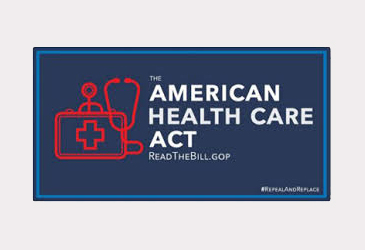WASHINGTON — The National Retail Federation (NRF) said it was disappointed that the House failed to vote on the Obamacare repeal-and-replace law on Friday.
 “This bill doesn’t do everything that should be done, but real reform could have been achieved today,” NRF vice president for health care policy Neil Trautwein said in a statement. “By holding out for a perfect proposal that might never make it to the White House, the House has squandered an opportunity to pass realistic legislation that could get through the Senate and be signed into law by President Trump. It’s time for lawmakers to stop fighting among themselves and move forward on health care reform that makes coverage truly affordable for employers and employees alike.”
“This bill doesn’t do everything that should be done, but real reform could have been achieved today,” NRF vice president for health care policy Neil Trautwein said in a statement. “By holding out for a perfect proposal that might never make it to the White House, the House has squandered an opportunity to pass realistic legislation that could get through the Senate and be signed into law by President Trump. It’s time for lawmakers to stop fighting among themselves and move forward on health care reform that makes coverage truly affordable for employers and employees alike.”
“There is a lot to like in this legislation,” Trautwein said. “It would put an end to the employer mandate that has driven up costs, repeal taxes that do the same, increase flexibility and put our nation on a path to a true competition-driven health care market. This could have been a victory.”
Republicans remained divided on the bill, known as as the American Health Care Act, and House leaders decided to pull back the legislation despite a vow from President Trump to leave Obama’s signature law in place if Congress did not act.
“We’re going to be living with Obamacare for the foreseeable future,” said House Speaker Paul Ryan (R., Wis.). “We came really close … but we came up short.”
Trump blamed Democrats and said they would pursue a deal within a year once “Obamacare explodes,” from high premiums.
“The best thing that could happen is exactly what happened — watch,” he said. “It’s enough already.” The AHCA was withdrawn twice, with the first vote slated for the seventh anniversary of the signing of Obamacare, or the Affordable Care Act.
From the NRF’s perspective, the AHCA would have accomplished some important things, including effectively eliminating the requirement that businesses provide health insurance to full-time workers. While budget reconciliation would not allow the mandate to be repealed outright, the bill would have reduced the penalties for non-compliance to zero.
The legislation also would have delayed the so-called Cadillac Tax on high-value health plans until 2026, and would have repealed Obamacare’s health insurance tax, medical device tax and pharmaceutical tax permanently. The law also would have increased flexibility for health savings accounts and would have taken a substantial first step toward Medicaid reform, the NRF stated.
NRF opposed the passage of Obamacare and has sought its repeal, the trade association said, arguing that the law emphasizes mandates that have driven up health insurance expenses for both employers and employees.




You must be logged in to post a comment Login